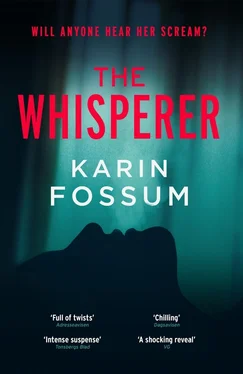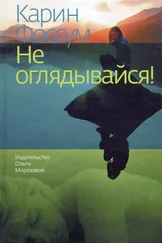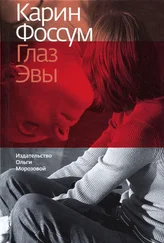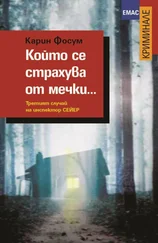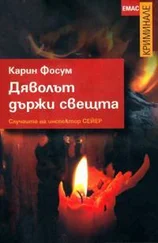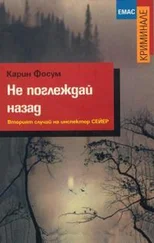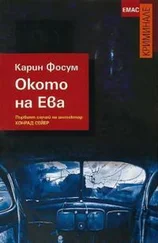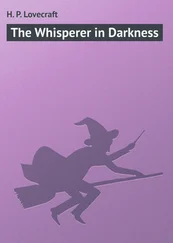‘Do you go online a lot?’
‘Sometimes. I read the odd article and watch videos on YouTube, and other stories about strange things that have happened. But never for long. Half an hour maybe, then I get bored.’
‘Facebook?’
‘No.’
‘Have you had any anonymous phone calls or threatening texts?’
‘Never.’
Sejer let the silence stretch out. He mused for some time on what whispering was normally a sign of — if you were not Ragna Riegel and a doctor had cut your vocal cord with a scalpel. Lots of people whispered when they were frightened. Or if they had a secret or when they gossiped about someone, or they didn’t want to disturb, say, a sleeping child, or if there was an enemy nearby and they were scared of being caught. Ragna always whispered. He had started to like it, he realised, her great stillness, her carefulness. Whispering meant that she weighed her words, did not just respond quickly, she had to make an effort to be understood. She tasted the words, planned them, formed them with her tongue and lips, used her facial muscles. He saw no self-pity there, no complaint, she would never scream at him over the table. If she wanted to make a noise she would have to start throwing the furniture. The unfortunate operation had given her a certain dignity.
He asked her if she had slept, and she had.
At first she had lain there, completely still, and listened to the cars outside the prison. There was quite a lot of traffic. She heard the trains as well, she said. They were not that far away. She told him that she had felt safe for the first time in ages, no one could reach her in the cell. So she slept better than she had for a long time. When she woke up, she was still filled with the same sense of security. The people guarding her were also protecting her; everything that was happening outside in the town seemed chaotic and unmanageable. She never heard the other inmates, no one screamed at night. No one opened her cell door to give her post.
‘Is there anything you need?’ Sejer asked. ‘Clothes, or anything else?’
‘You don’t like my coat?’ she teased. ‘It’s the Europris uniform.’
‘Don’t you take it off when you’re at home?’ he wanted to know.
‘I like it,’ she explained. ‘I like the big pockets. The overall is proof that I have a job and don’t live off social security. I have a disability, but I don’t let it stop me.’
‘What do you normally keep in your pockets?’
‘Have you answered all your phone calls?’ she interrupted.
There were no red lights flashing.
‘Yes.’
‘Were they about me?’
‘Some of them. Does that bother you?’
She shrugged.
Sejer looked at her over the table and thought that the time of first impressions was over. That moment when he saw her for the first time, those few seconds when his brain drew its quick conclusions. Thin and insignificant in an ugly shop coat. Her eyes and hair an indistinct colour. He had moved on, his impression had slowly changed. Her white skin and visible veins reminded him of a marble statue. Her eyebrows, thin and fine as whiskers, and also without colour. Her transparency, her femininity and vulnerability reminded him of a fairy-tale elf. Of course she had been beautiful when she was sixteen, he thought, and Walther Eriksson had seen it.
‘So,’ he said, ‘what do you normally keep in your pockets?’
She pulled a face. The inspector asked some odd questions, she thought, but guessed he had a plan, and she liked the fact that he often took detours.
‘The key to the staff toilet. And to the till. Lip balm. My mobile phone, so I can get hold of the others without having to hunt around. A Stanley knife to open all the boxes, and a packet of menthol sweets. Some rubber bands. Paper clips and tape. But the pockets are empty now. I like putting my hands in the pockets, it keeps them in place. Free hands are never a good thing. I don’t find it strange at all that people smoke.’
‘Would you like us to contact your son?’ he asked, out of the blue.
The question horrified her. She could barely answer, nor did she know whether she wanted them to or not. Her son, goodness, the way things stood, and everything he did not know. Her first response was to grip the armrests on the chair.
‘It’s not that easy to get hold of him,’ she whispered. ‘To be honest, I’m not sure what he’s up to.’
‘You can’t get hold of him?’
‘Not this autumn.’
‘What do you think might have happened, as you can’t get hold of him?’
‘We mothers have a lively imagination when it comes to what might have happened to our children,’ she whispered.
‘We fathers do too,’ Sejer replied. ‘Would you like me to make some enquiries? You won’t be able to hide what’s happened from him. But we will try to break it to him as gently as possible — that you’re here, that is. And we can tell him subsequently why you’re here, but that’s up to you.’
She loosened her grip on the armrests.
‘It would be better if Rikard Josef was allowed to get on with his life, without knowing,’ she said. ‘You know, ignorance is bliss.’
‘But what do you have to lose?’
‘The Christmas cards,’ she said. ‘The angels.’
Someone had sent her a letter. Not the kind that she feared, this was something else, a bigger envelope with her full address and full name. It was franked in Berlin. Ragna stood by the mailbox and froze under the street light, pressed the letter to her heart, overwhelmed with joy and relief. She walked the forty-eight steps up to the house slightly faster than usual, pulled off her coat and put the letter on the table by the sofa. Big, white and wonderful, it lay there waiting for her. She wanted to save it, savour the moment. I’ve got a letter from my son, the hotel director, she thought. He wants to tell me something. She was fizzing from head to toe. She would have to tell them at work tomorrow, they talked about their own children all the time. Now it was her turn, her son and his career. She had gone into Irfan’s and bought some food, a jar of pickled pumpkin, some habanero, a jar of garlic cloves and some spicy sauces. She put the things down on the kitchen table. She wanted to make something that would burn, first in her mouth, then all the way down to her stomach. She put some water in the espresso machine. Rikard Josef had not sent just a little card. This was a proper letter, she could feel that the envelope contained more than usual. So he must have some news to tell her, something big that he wanted to share with her. Was it possible that for the first time in years she would find a hint of concern for her and how she was? Had he realised that all was not right when he received her letter, even though she had said nothing? Was he so sensitive that he had read between the lines? Yes, she believed he was. Or was he writing to invite her to Berlin? Perhaps he wanted them to celebrate Christmas together, walk arm in arm along Unter den Linden as small white snowflakes danced in the air. She was so excited when she sat down with the letter in her lap. But there was something unusual about the envelope that made her uneasy, that she could not put her finger on. There was no sender address written on the back of this one either, but then lots of people did not bother with that, although she was particular about such things. She also did not recognise the writing on the front, she realised. But she knew no one else in Berlin. She tore open the envelope and pulled out the contents and then sat back, stunned. Inside the big envelope was a smaller envelope. She saw her son’s name and address in Landsberger Allee that she had written herself. In addition, there was a blue stamp with the two words: ‘Not known at this address’. The letter she had sent had been returned. She was so disappointed that she leapt up from the chair and started to pace around the room, glancing back in despair at the envelope. She was alone in the house. No one could see her, no one could hear, and yet she still had the strange feeling that someone was standing in the corner laughing at her. Celebrating Christmas in Berlin, how silly. What was she to do, what to think or believe? Not known at this address. He had been living there for years.
Читать дальше
